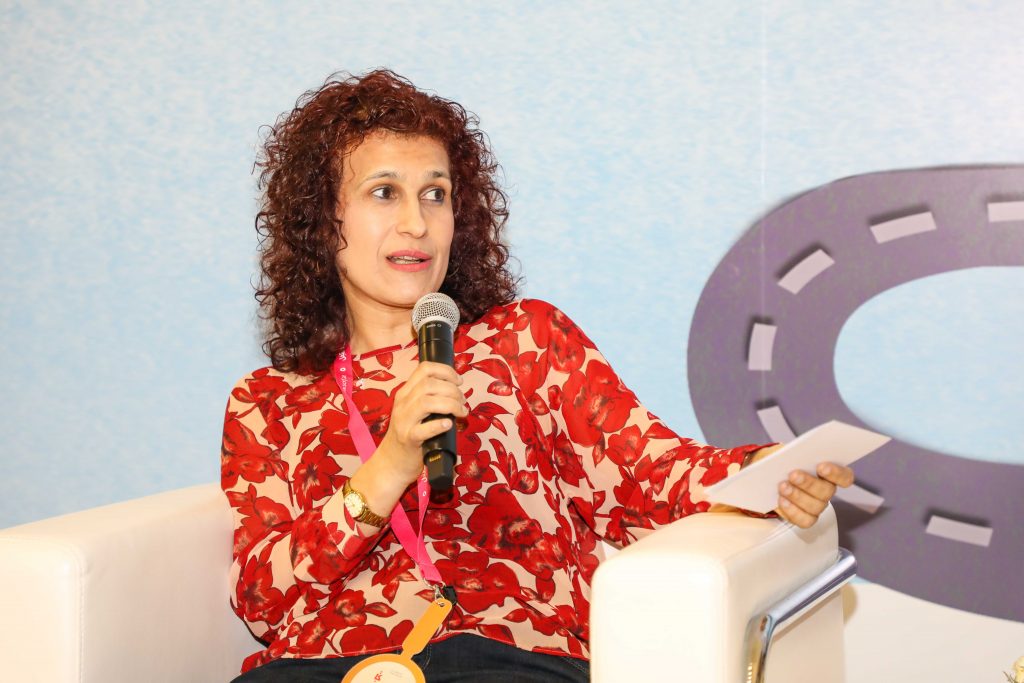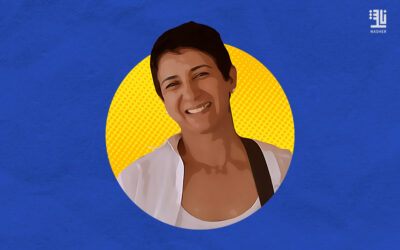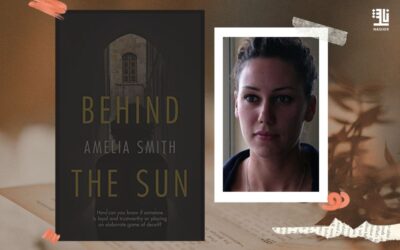“During the long years of the war, books gave me a new world to live my childhood”
Lebanese author Sanaa Shabbani chose writing children’s books to record her diary entries and recall the memories of her private life, transforming what she experienced during the long years of the war when she was young, into a way to explore love and hope and restore her faith in humanity.
Nasher interviewed Sanaa Shabbani and addressed her career as a writer and her vision on Arabic children literature.
Why did you choose to write children books?
I started writing as a very young child and discovered the basic forms of words through trying to understand scribbles and shapes, but as I grew older I began to write some simple work of my own and then went on to stories where I invented my own lands with imaginary journeys and creative adventures. There were plenty of different styles which I used but my favourite was sarcasm.
I used to read books passionately, even though most of them were targetted at different age groups. During the long years of the war in Lebanon, books gave me a new world to live my childhood. Other than school, summer holidays and visiting relatives with my mother, I spent most of the time at home. I read constantly and loved stories whether they were written or broadcast on TV, thanks to such programmes as ‘The Wonderful World of Disney’, ‘The Adventures of Sinbad’, and dubbed animated series, such as ‘Maya the Bee’. My love of stories grew and I never stopped writing, although it became much more private when I became a teenager.
I chose an Education Studies degree at university, and was fascinated by a course about children’s literature in particular because my final project was to write a story. I felt a true surge of excitement like something inside me was about to erupt and break free. My mind was exploding with ideas, thoughts and images which collided against one another, gathered, met and finally blended into a well rounded story. I wrote endless notes and managed to bring the ideas together to tell the tale I wanted. Subsequent stories made me seriously consider publishing them, and eventually that is exactly what happened.
What do you consider to be the most significant challenges that face the publishing industry in the Arab world in general and you in particular?
There are several significant challenges which come directly from the policies that monitor the Arabic publishing industry. It would be ideal if they were based around collaboration in order to forge strong partnerships, achieve balance, facilitate encouragement and ensure sustainability, but that it is not the case at the moment. Such policies would affect each publishing house and every individual, creating a knowledge-based society where every child, teenager and adult would read.
The publishing houses are also forced to take huge risks regarding the expense of marketing a book. That has a knock-on effect as far as the book marketing industry itself is concerned and in Beirut we saw the impact and consequences of that, with well-established libraries and book stores closing their businesses and services due to financial difficulties.
The personal challenges that I face are the same as any other writer of children books, in that it is almost impossible to work as a full-time writer; there needs to be another, more stable form of income. This means there is a lot of pressure on finding the time to not only write, but follow up on published books, be involved in the post-publication stages, participate in Arab and international book fairs, engage in social networking and so on. I try to find time to communicate with children and young adults because my true love of writing is the pleasure and joy it brings to them. It also provides me with invaluable feedback and evaluation so that I can improve my writing.







